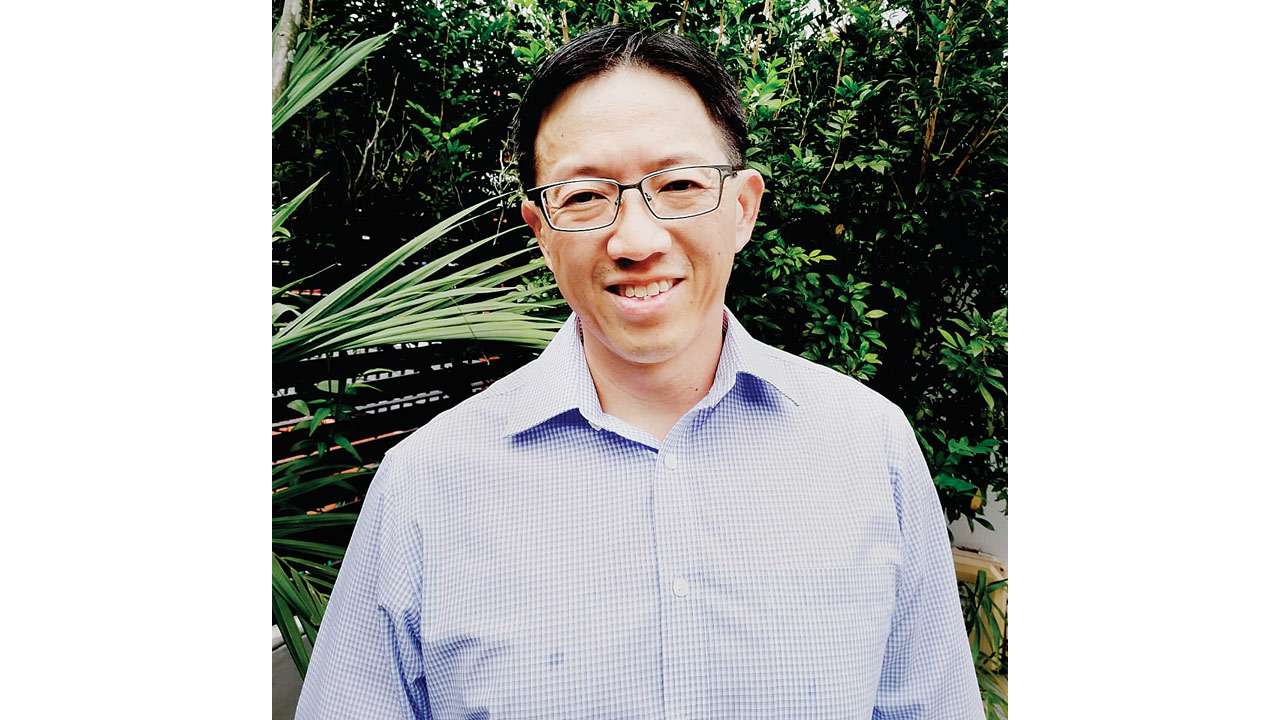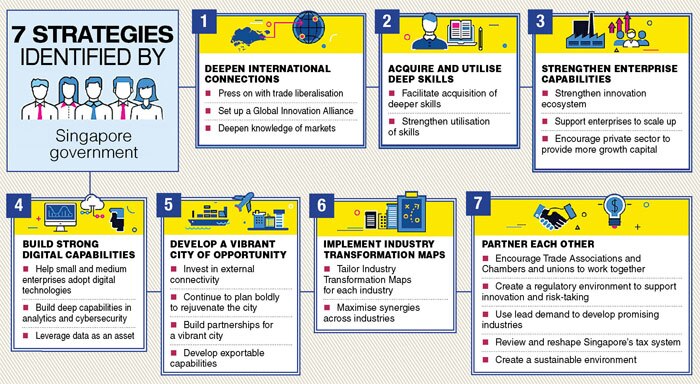
The mandate of the Futures Office is to envisage and develop a plan that will prepare NUS and Singapore for the future. Before NUS, Dr Kuah worked with the Strategic Policy Office (SPO) of the Singapore Prime Minister. The SPO is a team of civil servants who write long-term scenarios, looking into about 15-20 years in future, for Singapore. It studies geopolitical trends, technological issues, drivers of globalisation and combines them with local microtrends to see how these megatrends will affect the daily lives of the citizens of the country. Singapore, as a country, has already realised that the future of education has nothing to do with the future of schools. Education is going to occur outside schools as well. This scenario planning also looks at how this changing scenario affect people and their jobs. It analyses what will happen to kids who are studying in schools and will get a degree soon — will the jobs that they are and will be preparing for going to be there in 10 to 15 years. These are some of the fundamental questions which several government across the world are asking. The interview attempts at shedding some light on how some of these problems can be framed and addressed.
Adrian Kuah: The issue is we are on shifting sands and are projecting into the future that we don't know fully. The future has never been predictable, but the sense of uncertainty and anxiety has never been more profound as it is now. How does an economy prepare for jobs that don't exist. In practical terms, how do you do this. You're preparing for something that's not there.
It also suggests that the whole suite of questions surrounding future of work is associated with the future of education and that education may no longer be relevant or the only means to get an employment. Education was always seen as a panacea of sorts, as something that could get you to the finish line. Today, in some places, it barely even gets you to the start line.
We are looking at skills much more closely as opposed to just degrees. There are all kinds of skills that we need to find work, job or employment. Networking skills, people skills, problem-solving skills, critical thinking — all of these abilities are not captured in just qualification.
In most cases, these skills are a secondary consequence of a university education which presumably makes you an engineer, a lawyer, a doctor or whatever field you are studying in. And yet, these other skills that are obtained in the course of the formal education may turn out to be of more importance… So credentials may give way to skill sets, thus recruitment may not be dependent solely on a degree.
That's right. And it's simply because we do not test for the skills that are needed for the job. You can't test them in a standardised test as they were developed 50 years ago.
More importantly, if you look at the education enterprise as it is currently practised in modern societies, it is, in principle, no different from a factory from the age of the industrial revolution. It is an industry based model per se.
The school system is a factory model. That's why you have fixed periods, a time schedule of morning to evening — very similar to how factory shifts work. There are breaks in between to teach time management and personal management. But the fact remains that you arrange the tables and chairs in rows and columns facing the teacher (supervisor/expert), and not facing each other.
Yeah. So this also challenges the very notion of what we think of as 'expert'. In the future that we are contemplating, we need to look at various things — what experts can there possibly be? What kind of expertise can possibly be had when they are all equally in the dark. So the notion of knowledge being transmitted from authority downwards is not really an acceptable model anymore.
And to change this, the ability to build an argument or ask fundamental and original questions has to start early. This is not an easy conversation, as teachers are not accustomed to being questioned, especially about their authority on a subject. Traditionally, the environment within the school was considered more knowledge-rich compared to the environment outside the school. It is reversed these day. But we still keep assuming that education is the province of schools.
He will question all forms of authority, every fundamental thing that you do; such as insisting on a job you do not like. I'm glad that you're looking at issues like this because these are the kind of issues that I was looking at while I was working with the PMO. Everybody acknowledges that these are important issues to grapple with. But, the system still works, so the prevailing thought is — why fix it if it ain't broke? Or even worse, its broken but not that badly.
That's right. Governments always want to frame the future as to what's going to happen. And can they see it ahead of their competitors so that they can plan better and use it to their benefit. We forget that this is a normative dimension. What future do you want to happen? How will you build it?
We're always waiting for something to emerge. We hope to see it first, so we can react to it first, but we forget it. Perhaps the future is something you build on as much as you see ahead of time. Yes, you affect the outcome. In the process, you yourself are changed as well. But we retain this residual image of objectivity.
Are we a dispassionate observer of the system? Probably. Then can we dispassionately act on it? Not so much. We tend to forget that we are enmeshed inside it. And because we are enmeshed in it, when we act in the system it loops back to affect us in all kinds of complex ways. We don't see that. The cause and effect has changed. So that's the kind of work that I do now.
One of the themes that I talk about is how change is also changing. We no longer have that steady, incremental, predictable change.
The fundamentals are questionable now. So whenever we're doing scenario planning, we say that these are some fundamentals that we would build as a base and then do extrapolation on the base. For around 10 years, I was doing a research on this very idea at a defence policy thinktank. How do you build a strategy in a complex world? Strategy, earlier, was always regarded as kind of a recipe which would say 'this is where we are, and this is the intended outcome we want and this is the roadmap that will get us there'. That was strategy. But how do you strategise on shifting sands while the intended outcome is also morphing continuously? And how can you have a roadmap when there are no fixed parameters — starting from where you are, to where you're trying to go is always shifting.
It's starting to change rapidly. Look at the last two years for example. Many of the underlying assumptions that buttresses Singapore's Defence Strategy no longer exist. The assumption that the United States underwrites or guarantees security in the Asia-Pacific has also evaporated.
The US's role and actions were key planning assumptions for strategy since the end of the Cold War, and certainly when America was basking in the world referred to as the 'global cop', or the hegemon, or the guarantor of last resort. Even the rise of China, though acknowledged, was seen as secondary to the continued presence of the US.
We have looked at all of these questions. As they say in every investment prospectus, past performance is not a reflection of the future performance.
To look at the policy-making process, sometimes you feel that even if you have all the smart people individually, the group collectively is dumb. Collectively, we rely on outdated methods, inherited templates, precedents which were hugely successful in the past, but these are precisely the things that prove to be obstacles in the way of radical innovation and transformation.
Who would your like us to interview next: Please write in editor@dnaindia.net

PEOPLE CAN BECOME KEY DRIVERS OF CHANGE
ENTERPRISES CAN CREATE NEW IDEAS AND SOLUTIONS FOR THE WORLD
Source: Singapore Government